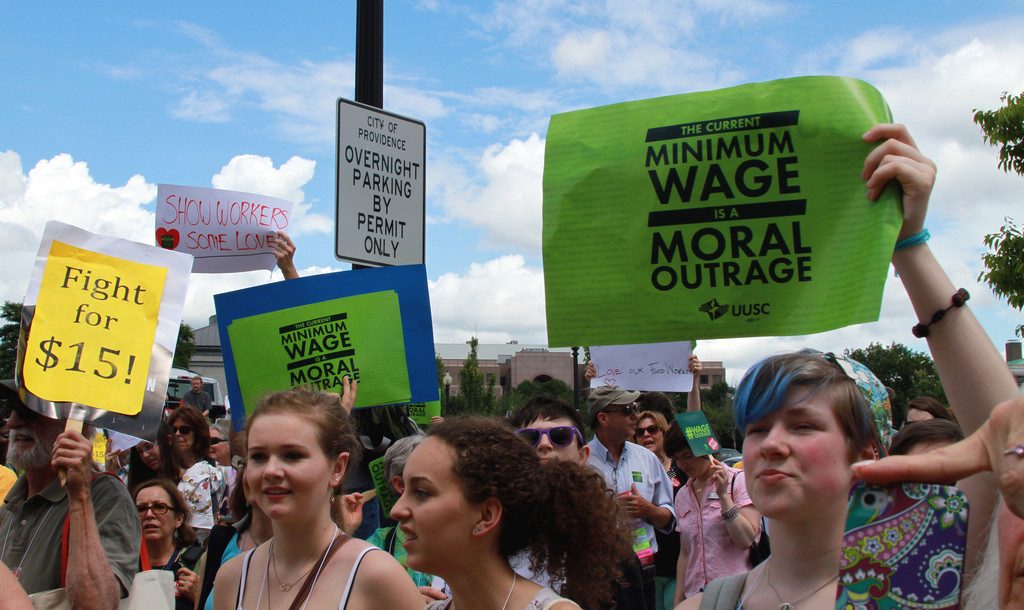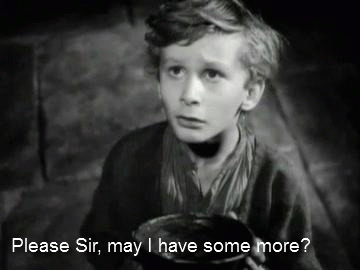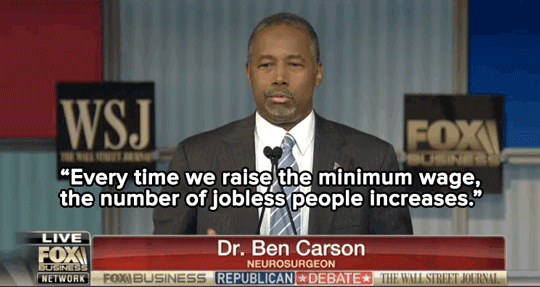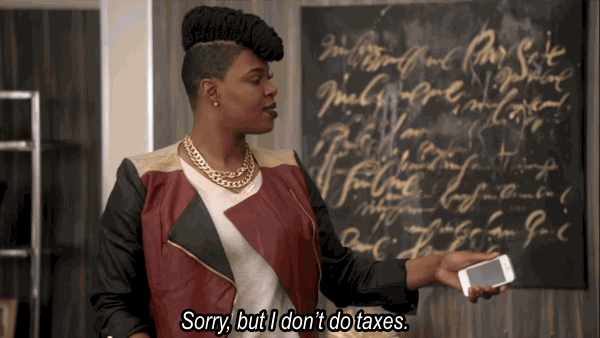
Is the minimum wage a good thing?
Minimum wage… lemme guess, that’s the minimum your wage can be, right?
Right. A does what it says on the tin: it’s the very smallest amount of money you're legally allowed to pay someone to do some work for you. Minimum wages are usually set as an amount per hour of work.
Countries around the world have very different minimum wages (and lots have none at all). It’s also not uncommon for different groups of people within one country to be entitled to different minimum wages. In the UK, for example, younger people can be paid less than older ones.
So, where did the idea of a minimum wage actually come from? Have we always had one?
Nuh-uh. Minimum wages were created out of a political idea that everyone who works should earn enough money to live off. Sounds pretty uncontroversial, right? But it's actually been the case for most of human history (and, indeed, still is the case for many people in the world today) that not earning enough money to keep yourself alive was very much your problem. Governments and business owners figured that if a few poor people starved, well, there was always more workers to be found.
But as time went on, more and more people began to see this sort of Dickensian inequality as really unfair. Around the turn of the twentieth century, lots of workers in Britain banded together in unions and pushed for many of the labour rights, including minimum wages, that we're familiar with today.
They were only partially successful though. New Zealand created the world's first national minimum wage in 1894. But Britain didn’t get a country-wide one until more than 100 years later, in 1999.

Nice history lesson, bro. But let's get back to the present: how many people actually earn the minimum wage right now?
According to the Low Pay Commission, in 2018 about 2 million jobs in Britain were minimum wage jobs. That’s about 7 percent of all the jobs in the country.
And is the minimum wage considered a good amount of money to earn?
That massively depends on where you are and who you ask. Different people have different ideas about how much money people need to live on, what quality of life should be seen as the bare minimum that people should be entitled to, and how much it's the job of the government (who sets the minimum wage) and businesses (who pay it) to ensure people have enough money for that quality of life.
Most Brits would agree that everyone should earn enough money to pay for food, rent, and other necessities. But there’s lots of debate about whether we should all be able to afford things that don't keep us alive but most people would say are important to their wellbeing: things like smartphones, holidays abroad, or a couple of pints down the pub on a Friday night.
Isn't one opinion winning, though? The minimum wage keeps going up, right?
That's true - in the UK, the minimum wage has been gone up every year since it was introduced in 1999. It started at £3.60 a hour for adults over 22 (and £3 for younger workers), and now in 2018 it's £7.83 an hour for adults over 25 (it then goes gradually down with age to £4.20 for under 18 year olds).
But part of the reason the minimum wage has increased is because inflation has also gone up. Inflation is when lots of prices rise at once. In the UK, inflation has made prices 68.32 percent higher than they were in 1999.
Higher prices means food and rent and the other things that we buy will use up more of our income, and therefore feel more expensive, if our wages don’t increase by the same amount as inflation. Because of this, the UK government makes sure the minimum wage increases with inflation, so people don't become poorer in reality (if not on paper).
However, the UK minimum wage for 25+ year olds has gone up by much more than inflation: by 118 percent. That’s because successive UK government have decided that it would be good policy to make minimum wages more generous. So over time, the National Minimum Wage has moved closer to the median hourly pay, which is the amount someone earns who has the exact same number of people earning more and less than them. In 1999, the National Minimum Wage was 46 percent of the median hourly pay. Now, it is 58 percent.
The UK has a more generous minimum wage than lots of other countries. It’s adult minimum wage was the ninth best in the OECD (a group of rich countries) in 2016.
So... it's all good on the minimum wage front for Brits?
Not according to some people, who say the National Minimum Wage isn't enough to live off. These people are campaigning for something they call the Real Living Wage (confusingly, the government calls its minimum wage for 25+ year olds the National Living Wage but it's not the same thing).
The Real Living Wage is currently £9 an hour outside of London and £10.55 an hour in London. Almost 5,000 UK companies, including IKEA and Nationwide, voluntarily adopt the Real Living Wage as the minimum wage they pay staff.
But then why isn't the National Minimum Wage put up? Don't businesses and governments want to help poor people?
Well, some people think minimum wages actually hurt poorer people. They say minimum wages make low-skilled workers seem too expensive for businesses, and cause them to either fire staff en masse or to not hire low-skilled workers in the first place. Instead, businesses get robots and other machines to do their job, and the end result is really high unemployment.
Alternatively, businesses could pay for the minimum wage by cutting other employee benefits, like sick pay. That could end up leaving all workers, not just ones on the lowest pay, worse off.
Studies on this have theory have produced mixed results. One in the UK says the minimum wage hasn't caused any more unemployment, but it has hurt the job prospects of some specific groups, like part-time workers.

Would businesses rather there was no minimum wage so they could get away with paying people next to nothing?
Well, some employers are actually big fans of the minimum wage, either because they think paying decent wages is just the moral thing to do, or because they believe that paying their staff a minimum wage is good business sense.
The idea is that workers who are paid decently will work harder and be more productive (most economists and businesspeople are big on upping productivity). Staff are also less likely to quit, which saves companies from spending lots of money finding and training replacements.
(Ofc, by this logic all firms should pay people well without needing a law to force them to do so, but businesspeople don't always have the knowledge or smarts to make the best long-term decisions.)
But, yeah, some employers grumble that productivity gains don’t make up for the way minimum wages cut into their business' profits. They say workers would accept lower pay which would save the company lots of money, and that some tasks just aren't difficult or valuable enough to be worth the minimum wage.
Callous and unfair? Maybe. But, as some point out, the less profit a business makes, the less money there is to spend expanding the business, cutting prices or creating cool new products, which everybody (as consumers) theoretically benefits from.
What about politicians? How do they feel about the minimum wage?
Again, it depends. Some say a high minimum wage will save governments lots of money, because people will be earning enough that they won't need welfare. That frees up dough to spend on other things voters would like more of, like police officers or road repairs.
And switching out welfare payments for higher wages is also good for people's happiness as some feel a sense of stigma about accepting government help. Generally, governments like making their populations happier because then they’ll support their political party / not protest in the streets.
But if minimum wages do increase unemployment, then that’s not so good for governments. Most unemployed people will need welfare, which actually means less money for the government to spend on those pet projects people like. It might even mean they have to raise on employed people (by and large, people aren’t a fan of big tax bills).
Even if a government provides such good welfare services that nobody is worse off unemployed, lots of people think having work is such a meaningful and important part of life that they’d still be mad at a government who put in rules that stopped them from getting a job.

Well, what do economists say about it? They're meant to have the answers to this sort of thing, right?
We wish that was true (it'd make our job a lot easier) but the fact is nobody really agrees about anything in economics. The "best" solution to a problem will always depend on what you measure, what you prioritise, and what you value.
For example, some economists think minimum wages boost (i.e. make a place richer). Their logic is that the more money people earn, the more money they'll spend. That means more shops will be set up to sell them stuff, and more people hired to create that stuff, and so on in a big virtuous circle that makes us all richer.
And these economists think minimum wages are particularly good at boosting economic growth because it’s putting more money in the pockets of poorer people, and poorer people tend to spend a larger portion of their income than richer people (who save more).
But not everyone thinks economic growth is a good thing to aim for (see blue box). And even some economists that do like economic growth don't like minimum wages, especially those who are fans of a popular economic idea called 'supply and demand'.
Supply and demand says that the best way to maximise everyone's happiness in any transaction is to let buyers and sellers haggle it out until they reach a price they're both happy with. So economists who back this idea say people should have the freedom to be able to sell their labour (i.e. accept a wage) at any level they chose, even if it's below the government's minimum wage.
Okay, so nobody agrees on whether minimum wages are good or not. Cool. Is there something else we could try if we want to make low-paid people better off?
Yes, there are loads of alternatives to having a minimum wage. Some popular examples:
- Universal Basic Income
This is where everyone, regardless of wealth or employment status, gets given a certain amount of money by the government to spend as they please. It could ensure everyone has enough money to live without putting the burden of paying for this on businesses. But critics say it would be really, really expensive.
- Negative Income Tax
The idea is that people only pay taxes after they earn a certain amount of money. People earning less than that amount get given the difference by the government in a 'negative tax'. It’s a more selective (and therefore more affordable) as well as a more progressive (the poorest benefit the most) rift on universal basic income, although it doesn’t cover the unemployed.
- Free for all
There could be no minimum wage or government welfare, and everyone could just figures it out. Some people think this will incentivise us all to work our butts off and everyone will get rich. But there's a big risk that we end up all Dickensian, with some poor people homeless and starving.
But what do you think? Is the minimum wage a good thing? Should it be higher? Lower? Got rid of all together? Let us know!



